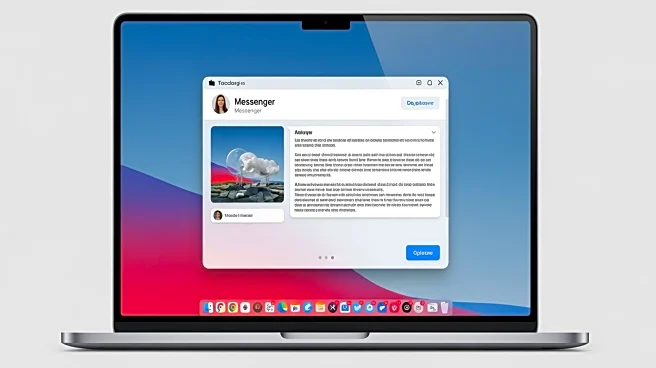What's Happening?
Meta has announced the discontinuation of its Messenger desktop applications for Mac and Windows, effective December 15. Users will receive in-app notifications about the shutdown and will have a 60-day
period to continue using the app before it is permanently closed. After the shutdown, users will need to access Messenger through Facebook.com or Messenger.com. The mobile version of Messenger will remain unaffected. Meta advises users to activate secure storage to save their chat history before the app is removed, as failure to do so will result in the loss of chat history.
Why It's Important?
The discontinuation of Messenger's desktop apps marks a significant shift in how Meta is streamlining its services, potentially affecting millions of users who rely on desktop applications for communication. This move may push users towards more integrated use of Facebook's platform, potentially increasing traffic and engagement on Facebook.com. It also highlights Meta's focus on mobile-first strategies, reflecting broader industry trends where mobile usage surpasses desktop. Users who prefer desktop applications may need to adapt to new workflows, impacting productivity and communication habits.
What's Next?
Users will need to transition to using Messenger through Facebook.com or Messenger.com, which may require adjustments in user habits and preferences. Meta's decision could lead to increased user engagement on its web platforms, potentially influencing future development and integration strategies. Users are encouraged to activate secure storage to preserve their chat history, indicating a potential increase in demand for data management solutions. Meta may continue to refine its offerings to align with user needs and technological advancements.
Beyond the Headlines
This development raises questions about the future of desktop applications in an increasingly mobile-centric world. It may prompt discussions on data privacy and storage solutions, as users are urged to secure their chat histories. The shift could also influence how other tech companies approach app development and user engagement strategies, potentially leading to broader industry changes.











